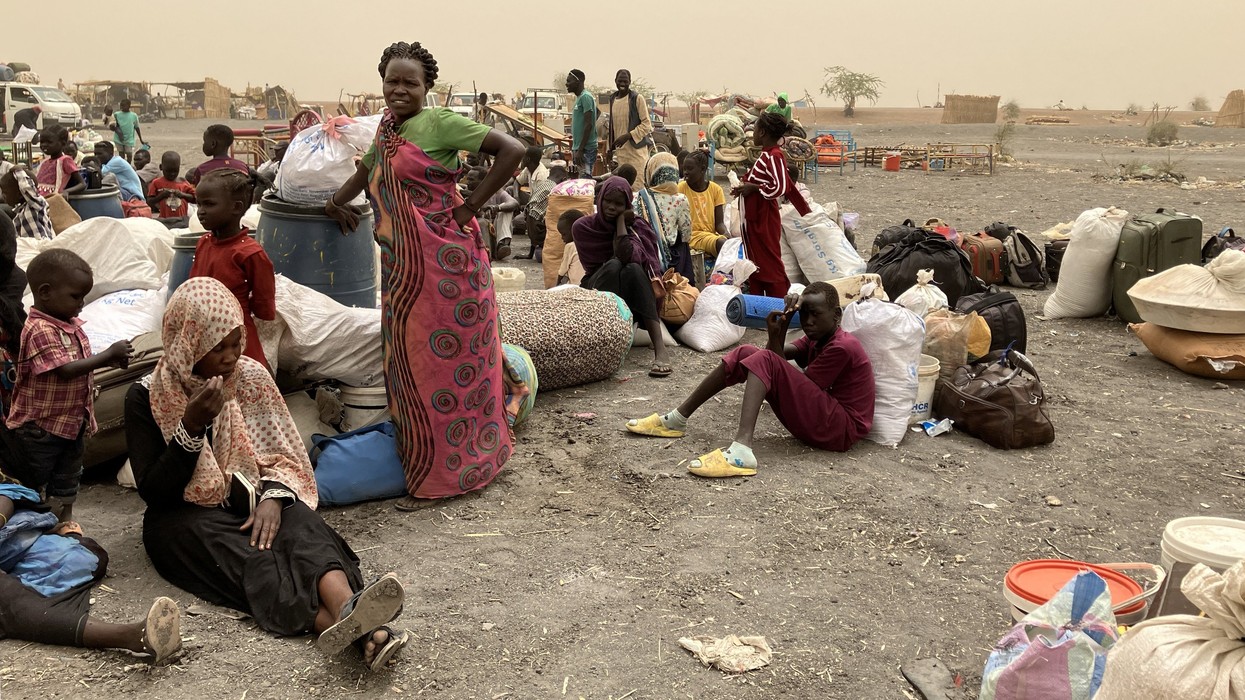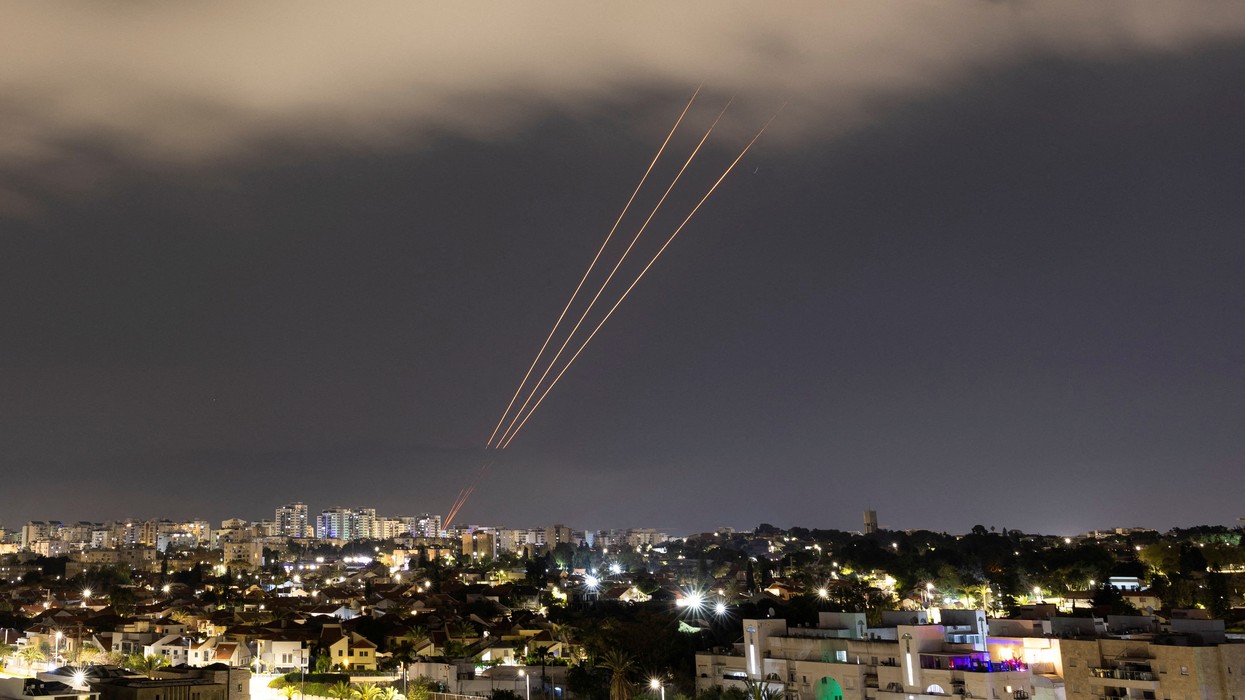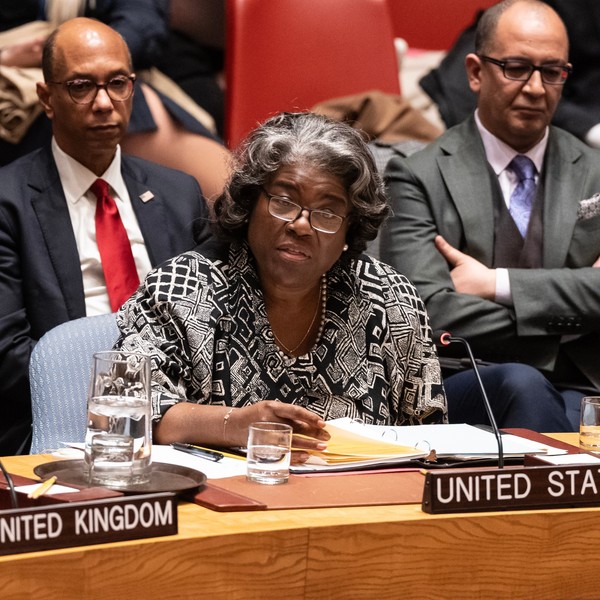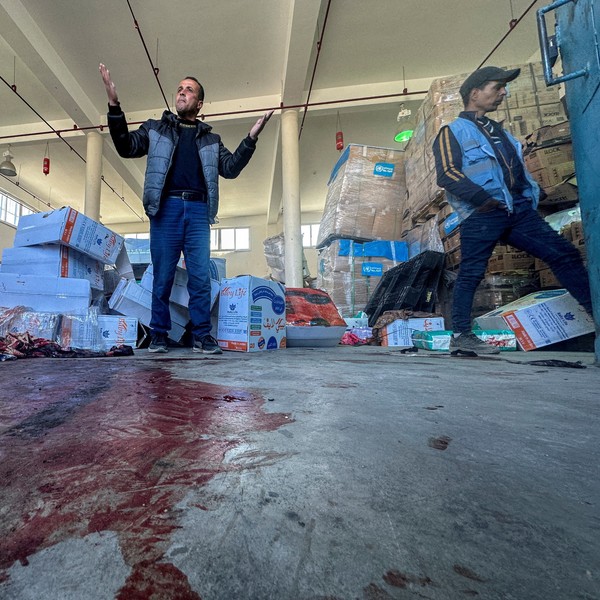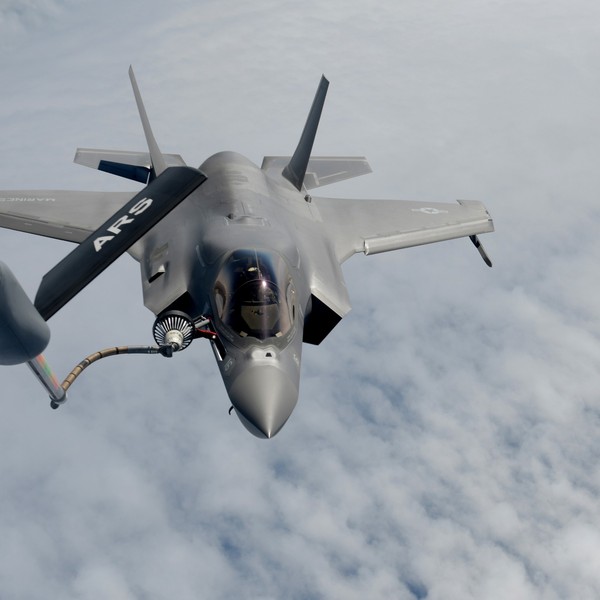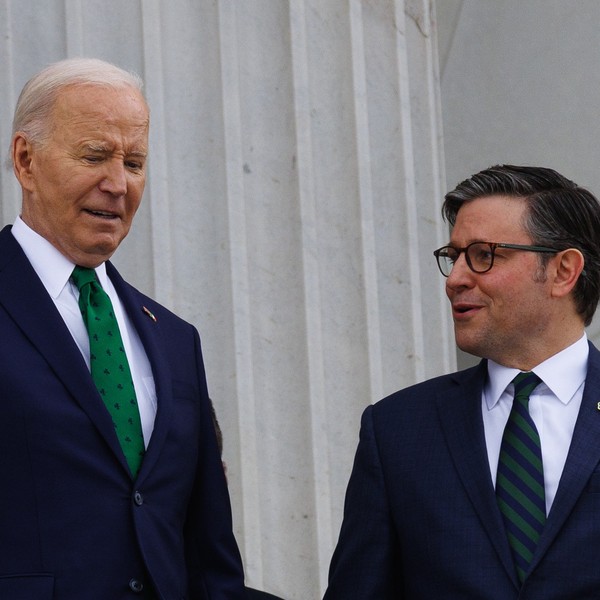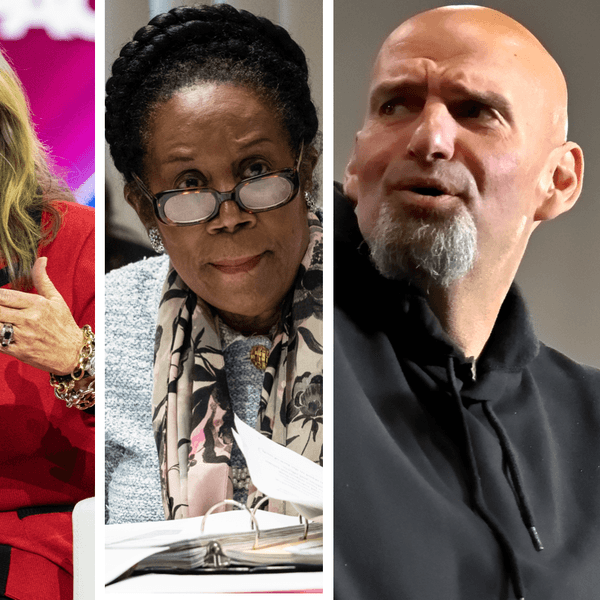When Russia invaded Ukraine, the West came together in a remarkable show of solidarity. Dozens of countries sent aid to Ukraine in hopes of at least slowing the Kremlin’s march, helping Kyiv to turn the tide of the conflict and eventually push Moscow back to eastern Ukraine. A near stalemate has held ever since.
While Western leaders still pledge to help Kyiv for “as long as it takes,” public support for Ukraine aid has started to splinter. In Europe, enthusiasm for strong sanctions has steadily declined in many key countries, including Germany, Britain, and France.
In the United States, Republican support for sending any sort of financial aid to Ukraine has plummeted from nearly 70 percent last April to less than 40 percent today, and “even Democrats are showing slightly less support for certain types of aid than they did last year,” according to the Economist. (Note that Washington has provided more than half of total aid to Ukraine since last year, far more than any other country.)
These tensions burst into the public sphere earlier this week, when Germany’s ambassador to the United States got into a not-so-diplomatic Twitter scrap with Sen. J.D. Vance (R-Ohio), an upstart politician with a flair for populism.
“Germany's conduct in this war is disgraceful, and it's insulting to our voters that too many Republicans go along with it,” Vance tweeted, referencing widespread concerns that Berlin has overpromised and under performed on pledges to modernize its military in order to better confront Russia. “All of their promises have materialized into manure.”
German Ambassador Emily Haber clapped back at Vance a few days later. “Manure? We’re the largest weapons supplier of #Ukraine in the EU,” Haber tweeted. “Our imports of Russian energy are down to zero. An irreversible strategic shift, happening almost overnight.”
“We’ve committed an extra $100 billion for defense,” she continued. “We’ll spend it. But you can’t buy tanks at Costco.”
Vance wasted no time in responding. “If your policy hadn’t been to depend on Russia for energy and shirk your NATO dues for two decades you wouldn’t be shopping for tanks at Aldi,” he wrote. (While NATO has no official “dues,” U.S. policymakers have long pushed allies to spend at least two percent of GDP on defense.) In a likely well-advised move, Haber opted to leave the conversation there.
Meanwhile, another Western split played out at the Munich Security Conference last month, according to Stephen Walt, a Harvard professor and Quincy Institute non-resident fellow. In Foreign Policy, Walt noted “a gulf between the optimism that top officials expressed in public and the more pessimistic assessments one heard in private.”
Despite soaring rhetoric in public speeches, no officials who spoke with Walt expected that Ukraine would be able to retake all its territory, and none predicted the war would end soon. “Most of the people I spoke with expect a continued grinding stalemate, perhaps leading to a cease-fire some months from now,” he wrote.
Walt’s conclusion? “Western aid for Ukraine is not aiming for victory; therefore, the real goal is to put Kyiv in a position to strike a favorable bargain when the time comes.”
But, he notes, this approach comes with significant risks. “If the war is still at a brutal stalemate in February 2024 and Ukraine is being destroyed, then Biden will face pressure either to do more or look for a plan B,” Walt wrote. “Given what he’s promised, anything less than complete victory will look like failure.”
In other diplomacy-related news:
— The Department of Defense is preventing the U.S. from sharing evidence of Russian atrocities with the International Criminal Court “because they fear setting a precedent that might help pave the way for it to prosecute Americans,” according to the New York Times. The move puts the Pentagon at odds with the rest of the Biden administration and many members of Congress, who gave special permission to share American intelligence with the court despite the fact that Washington rejects its jurisdiction. In Ukraine’s latest peace proposal, President Volodymyr Zelensky called for a special tribunal to try Russian leaders for numerous alleged war crimes. “We are doing everything to ensure that the International Criminal Court is successful in punishing Russian war criminals,” Zelensky said last Friday.
— On Wednesday, UN Secretary General Antonio Guterres met with Zelensky in Kyiv, where the pair expressed support for extending the Black Sea grain deal before it expires on March 18, according to Politico. “Today, we are interested in ensuring that there is no hunger in the world,” Guterres said after the meeting. “Our common policy is to continue the operation of the ‘grain corridor.’” At least 23 million metric tons of Ukrainian grains and other agricultural products have passed through this corridor since Russia and Ukraine agreed to the deal last August, according to the State Department.
— Unnamed U.S. officials told the New York Times Tuesday that, according to “new intelligence,” a “pro-Ukrainian group” with no apparent links to Kyiv’s top brass may have carried out last year’s attack on the Nord Stream pipelines. This new theory comes after veteran investigative journalist Seymour Hersh pinned the blame on the United States in a detailed article, setting off a whirlwind of discussion around who was behind the attack. While the true culprit remains unclear, the early Western theory — which held that Russia carried out the bombing — appears to have been discredited.
— In a notable reversal, Hungary plans to support Sweden’s bid to join NATO following meetings between officials from the two countries, according to AP News. A Hungarian delegation will also soon visit Finland for talks about potential membership in the alliance. If Hungary signs off on both bids, Turkey will become the lone state preventing the Scandinavian countries from joining NATO, which can only admit new members by consensus.
— On Tuesday, Chinese Foreign Minister Qin Gang said “conflict, sanctions, and pressure will not solve the problem” in Ukraine and renewed his country’s call for peace talks, according to Reuters. Qin also lashed out at U.S. officials over their promise of “consequences” if Beijing chooses to send weapons to support Moscow’s war effort. “[China] is not a party to the crisis and has not provided weapons to either side of the conflict,” he said. “So on what basis is this talk of blame, sanctions and threats against China?”
U.S. State Department news:
In a Tuesday press conference, State Department spokesperson Ned Price pledged to hold Russia accountable for war crimes. “The international community, including the United States, will do everything we possibly can to see to it that those responsible – at the ground level up to the political level – are held responsible and accountable for these war crimes and atrocities that we’ve seen committed,” Price said.

